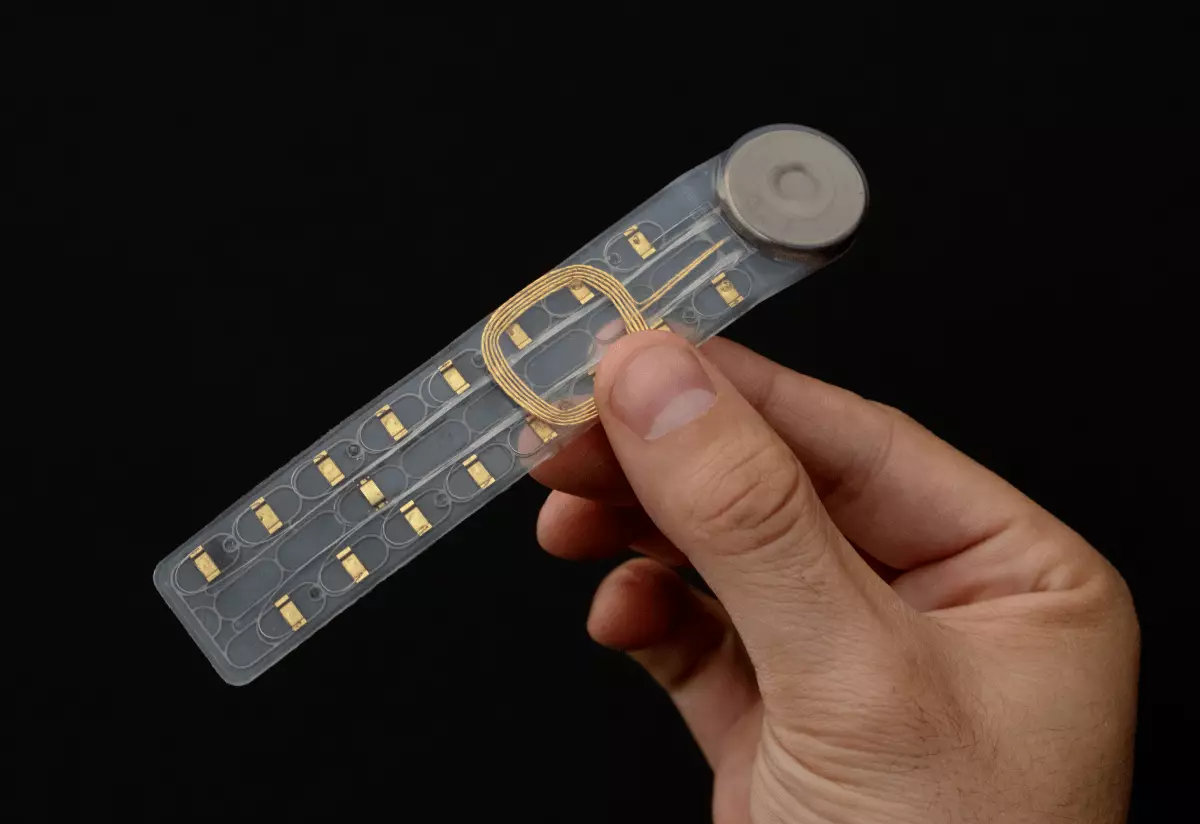In a world where science fiction meets reality, the concept of superhuman capabilities achieved through technology is no longer an elusive fantasy. Thanks to pioneering companies like Phantom Neuro, we are witnessing a significant shift in how we view medical technology and its potential to enhance human life. This startup is revolutionizing the field of prosthetics with a unique bionic device that goes beyond traditional methods, introducing a new paradigm of rehabilitation and empowerment for amputees.
With a recent funding round that raised $19 million, Phantom Neuro is gearing up for the next phase of its development journey. The startup’s innovative approach involves a wristband-like device implanted beneath the skin, enabling individuals to exert control over prosthetic limbs simply through neural signals. This method is grounded in the well-established phenomenon of the phantom limb—the perception experienced by amputees who feel sensations from limbs they no longer possess. By capitalizing on this principle, Phantom Neuro is crafting a means for users to regain near-complete functionality.
Transforming Imagination into Reality
Phantom Neuro’s journey has been punctuated by noteworthy achievements that underscore its credibility as a burgeoning player in med-tech. The company has received two important designations from the FDA—a Breakthrough Device designation and a classification under its medical device accelerator program. These designations not only enhance the company’s profile but also facilitate a more streamlined pathway toward commercialization. This strategic positioning, along with operational successes such as its high accuracy rates, suggests that Phantom Neuro is on the brink of something groundbreaking.
In a recent study, the company showcased its “Phantom X” software, demonstrating an impressive 94% accuracy in interpreting movements based on nerve impulses. This progress indicates that users could potentially regain around 85% of their limb functionality after just ten minutes of calibration—an enticing prospect for those adapting to life with prosthetics. Such advancements reveal how far we have come in understanding the interplay between nerve signals and artificial limbs.
A Visionary’s Journey: Dr. Connor Glass
Phantom Neuro is driven by the visionary aspirations of its founder, Dr. Connor Glass. Raised in Oklahoma, Dr. Glass’s early ambitions were rooted in a desire to make a substantial impact. His experience with repeated stress fractures during his time in ROTC spurred a transformative decision to pivot from military aspirations to medicine. A formative moment witnessing brain surgery opened his eyes to the intersection of technology and healing, igniting a passion that would lead him to develop solutions for more severe limb issues.
Dr. Glass’s academic journey culminated at Johns Hopkins—an institution known for its cutting-edge research. Here, he recognized the limitations of existing brain implant technologies, which were often cumbersome, highly invasive, and lacked scalability. This realization shifted his focus towards a more holistic understanding of the human body’s neural systems, informing the development of Phantom Neuro’s innovative technology that taps into nerve endings rather than relying on invasive implants.
Charting New Territory in Medical Interventions
The idea of implanting a device beneath the skin may seem daunting for many, but it is essential to note that medical history is filled with analogous interventions, from spinal cord stimulators to heart pacemakers. Phantom Neuro’s approach is not a radical departure from existing medical practices; instead, it represents a natural progression in the quest for more integrated and minimally invasive medical technologies.
The company’s roadmap includes the immediate rollout of their technology for prosthetic arms, with future plans to extend support to prosthetic legs. However, the implications of this innovation extend far beyond amputees. The potential applications hint at a future where bionic technology could interface with robotics, enabling more nuanced and human-like control over machines—a tantalizing prospect for industries reliant on automation and AI.
Partnerships That Propel Progress
Phantom Neuro’s collaboration with Ottobock, a leading manufacturer of prosthetics, serves as a strategic alliance that promises to elevate their technological development. By leveraging Ottobock’s expertise and predetermined market presence, Phantom Neuro positions itself as a formidable innovator at the cusp of transforming prosthetic capabilities.
Dr. Arne Kreitz, CFO of Ottobock, has expressed confidence in Phantom Neuro’s approach. His validation emphasizes the importance of developing a neural interface that is not only efficient but also minimally invasive. This endorsement from a well-established industry player underscores the belief that the future of prosthetics lies in finding a harmonious balance between technology and human physiology.
As we stand on the brink of a new era in medical technology, Phantom Neuro’s journey illustrates the exciting possibilities that lie ahead. The convergence of neuroscience and prosthetics promises to redefine rehabilitation and empower individuals in ways previously imagined only in the realm of science fiction. This innovative spirit, coupled with a clear vision, positions Phantom Neuro as a frontrunner in the transformative field of bionic technology.

